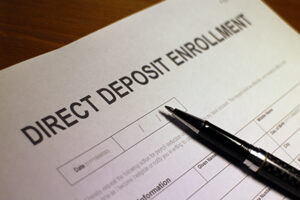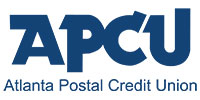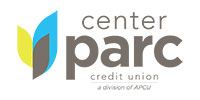
Direct deposit is generally referenced as the electronic transfer of money owed to you or being paid to you directly into your bank or credit union account. Direct deposit is most often used for your reoccurring paycheck from your employer, but it can also be used by other depositors such as Social Security, retirement plan distributions, annuities and more.
So what are the benefits of using direct deposit?
- One of the biggest advantages of using direct deposit is the convenience, because it’s faster, safer, and easier than waiting for a check and taking it to your financial institution for deposit.
- It also reduces the risk of being lost or stolen because money goes directly into your account.
- Direct deposit also eliminates the need for you to take a trip to your financial institution on payday, especially if you want immediate access to the money.
- Additionally, direct deposit gives you faster access to, and more control over, your money.
- Your money will be deposited into your account at the same time each month, and you can access your funds virtually anytime and anywhere.
Plus, you can make your direct deposit work even more for you!
With your paycheck being deposited on-time each month, you’re able to schedule other automatic payments based on the timing of your direct deposit. You can also split your direct deposit between multiple accounts to allow some for your checking account to pay bills, put a portion to go to a savings account or retirement account. It’s an easy way to start saving more!
With your paycheck being deposited on-time each month, you’re able to schedule other automatic payments based on the timing of your direct deposit. You can also split your direct deposit between multiple accounts to allow some for your checking account to pay bills, put a portion to go to a savings account or retirement account. It’s an easy way to start saving more!
So what’s the downside to direct deposits?
- One of the challenges with direct deposit occurs when you change financial institutions. Most financial institutions can be very helpful and easy to work with for such a change, but it does usually require a little effort on your part and with your employer (or provider of the direct deposit funds) to make sure information is updated to your new account.
- Another potential challenge with a direct deposit would be if you owe certain fees to your financial institution – such as late fees or overdraft fees. Those fees could possibly be deducted from your account as your direct deposit is made, thus reducing the amount available from your deposit. If this is of concern to you, check with your financial institution on their policies.
Overall, the advantages of direct deposit far outweigh most disadvantages. In most cases it’s a free service, easy to enroll with your financial institution and employer, and you have the convenience of your money being deposited and available sooner. And, you can take advantage of splitting your deposit to start added savings even easier.
To learn more about direct deposits, please visit our sponsors, Atlanta Postal Credit Union or Center Parc Credit Union– they’ll be happy to help with your specific questions.











